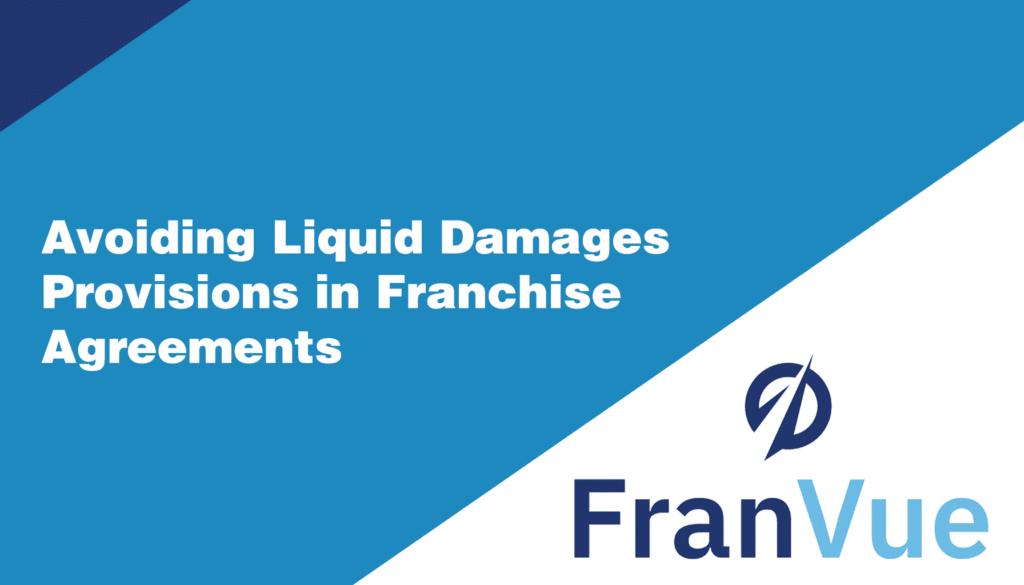Introduction
Entering into a franchise agreement can be an exciting endeavor for aspiring entrepreneurs. It offers the opportunity to operate a business with an established brand and support system. However, before signing on the dotted line, it’s essential to carefully review the terms and conditions of the agreement. One clause that often raises concerns is the liquid damages provision. In this article, we will explain what a liquid damages provision is and why it should be avoided to protect your interests when considering a franchise opportunity through FranVue.
Understanding Liquid Damages Provisions
A liquid damages provision, also known as a liquidated damages clause, is a contractual term that specifies a predetermined amount of money that one party must pay to the other in the event of a breach of the agreement. In the context of franchise agreements, liquid damages provisions typically come into play if the franchisee breaches specific terms or conditions outlined in the contract. These provisions serve as a way to quantify the damages suffered by the franchisor due to the breach without the need for lengthy and costly legal battles.
Why Liquid Damages Provisions Should Be Avoided
While liquid damages provisions may seem convenient for both parties in the event of a dispute, franchisees should be cautious about accepting such clauses in their franchise agreements. Here are some compelling reasons why liquid damages provisions should be avoided:
- Lack of Flexibility: Liquidated damages are fixed amounts specified in the contract, and they may not accurately reflect the actual harm caused by a breach. If a franchisee faces unexpected challenges or circumstances beyond their control that lead to a breach, they may still be required to pay the predetermined liquidated damages, which can be financially crippling.
- Unfair Financial Burden: In some cases, liquidated damages may be set at an excessively high amount, disproportionate to the franchisor’s actual losses. This can put an unfair financial burden on the franchisee, making it difficult to recover from any setbacks or business challenges.
- Inhibits Negotiation: Franchise agreements are typically offered on a take-it-or-leave-it basis, with limited room for negotiation. Accepting a liquid damages provision without question can further limit your ability to negotiate more favorable terms in other areas of the agreement.
- Legal Uncertainty: The enforceability of liquid damages provisions can vary by jurisdiction and may be subject to legal challenges. Relying on such clauses may lead to protracted legal disputes that are costly and time-consuming.
- Alternative Solutions: There are alternative methods for addressing breaches and disputes, such as mediation, arbitration, or agreed-upon damages based on the actual harm suffered. These options can be fairer and more flexible than rigid liquidated damages provisions.
Protecting Your Franchise Interests with FranVue
At FranVue, we understand that entering into a franchise agreement is a significant decision. We advocate for transparency, fairness, and flexibility in franchise agreements to protect the interests of both franchisors and franchisees. When considering a franchise opportunity, it is essential to consult with legal and financial professionals who specialize in franchising to help you navigate the terms of the agreement and negotiate fair terms.
In conclusion, while liquid damages provisions may seem like a convenient solution to potential disputes in franchise agreements, they come with inherent risks that franchisees should be wary of. It is crucial to evaluate the terms of your franchise agreement carefully and seek professional advice to ensure that your interests are protected. FranVue is committed to promoting fair and equitable franchise relationships, and we encourage franchisees to advocate for agreements that prioritize fairness and flexibility.
Remember, a well-negotiated and balanced franchise agreement is the foundation for a successful and mutually beneficial business partnership.


